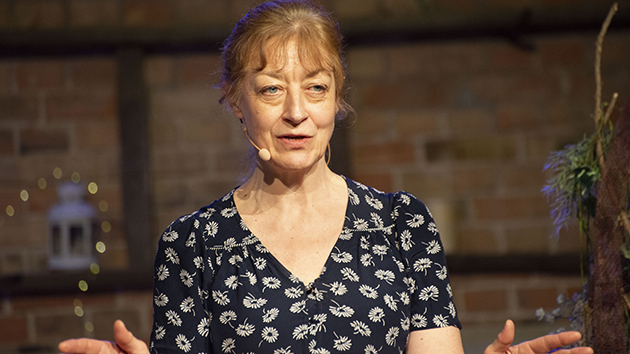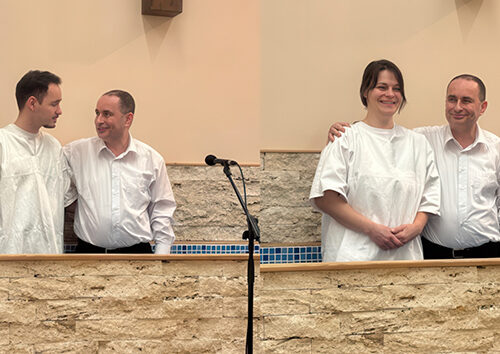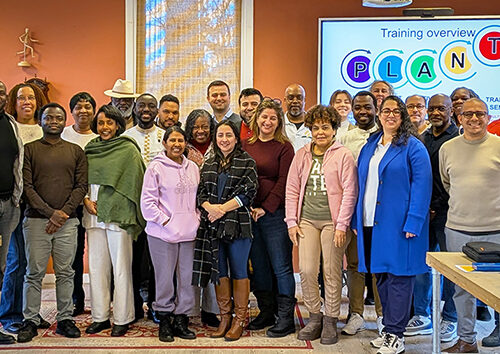15 March| St. Albans, UK [Karen Holford with tedNEWS]
When was the last time that you were filled with wonder? What made you laugh this week? What went well today? What are you most grateful for?
These are important questions because they are about experiencing the power of positive emotions. They brighten our lives, grow our resilience, help us to engage kindly with others, and wash our brains with the wonderful hormone of oxytocin, which calms us down and sparks a glow of warmth in our hearts.

Being positive in a negative world
Our brains are looking for positive stories to help us to make sense of our world. They create beautiful memories. They entertain, amuse, inspire us and help us to broaden our minds and find creative solutions for our problems. And they can even help to heal the distress in our lives.
Social media can also provide positive experiences as we make friends with people all over the world and communicate with them freely and easily. We can become more aware of world issues and respond to them with compassion. We can give each other emotional support.
However, social media can also isolate us from real relationships with people and even with God. We can become self-absorbed and disconnected from the real, multi-sensory world in which we were created to live, and we can feel anxious, inadequate, lonely, and depressed.
Painful disconnection
We can easily become isolated on our ivory islands. We can post all kinds of content without being able to monitor their effects on other people, for example, to watch the expression on the other person’s face. If we notice that they are troubled by what we said, we can comfort them, apologise, change the subject, and distract them. If we post it from behind a screen, we have no immediate feedback on the effect our message has had on others, particularly if that person is sad, anxious, struggling or feeling inadequate, as he/she will probably not respond at all.
Positive messaging
While the billions of daily posts on social media have the power to create a disconnection between God and people, as kingdom people we have Holy Spirit power to use digital platforms to help people connect with a real and loving God. We can encourage kindness and compassion, and demonstrate gratitude perhaps by sharing photos of God’s wonderfully created world.
Balancing emotions
As human beings, we need to balance our emotions. We can’t control everything that happens to us, and life inevitably has its ups and downs. To flourish, we need to have a ratio of more than 3:1 positive to negative emotional experiences in our lives. The 10 most common negative emotions are: anger, contempt, disgust, embarrassment, fear, frustration, guilt, sadness, shame, and stress. These can drain the energy out of us and leave us feeling low and depleted. The 10 most common positive and energising emotions are: amusement/fun, awe/wonder, gratitude, hope, inspiration, interest (spending time enjoying a hobby), joy, a sense of purpose, serenity, and love. These emotions give us a warm glow, and healthy feel-good experience because they stimulate the release of the hormone oxytocin, which is good for us and our relationships!
Loving God
Whenever people read material that comes from a Christian source, it will consciously or unconsciously shape their picture of God that is continually developing in their minds. Every social media message is like a piece of a jigsaw that clarifies their picture of a loving and forgiving God, blurring their picture, or building a picture of a fearful and vengeful god. What picture of God can we/do we convey through our social media posts?
Loving others
Encourage your readers to build positive relationships with others. The better their relationships with others, the happier and more resilient they are likely to be. Criticism, judgmental attitudes, rejection, abuse, contempt, shame, discouragement, fear, being put down, and harsh words damage our relationships and our sense of self.
However, we can strengthen our relationships by listening to others so that we can understand them better; identifying the other person’s emotions and showing empathy towards them; helping them when they are struggling and suffering; speaking and acting kindly whenever possible; and making sure that people are safe. We can also comfort those who are sad; accept those who have messed up; be grateful to those who make our life easier or happier; lift others with dignity; encourage people; and let them know how valuable they are. When we treat others with love, we are naturally blessed too.

Auditing your social media interactions
After you have created your content, audit its emotional tone, and the messages it gives about God and our relationships with each other. Of the many ways to check your social media interactions, one of the most beneficial is to help where possible other people’s unhelpful and negative messages in a gentle way. They may be posting these messages because of their own sadness and distress, or their distorted picture of God’s love for them and others.
Before you post…Reread…
Try reading each of your messages again before you post them. Think about them from the perspective of a person who feels inadequate, or who is grieving, sad or depressed, afraid, guilty or ashamed. What impact will your message have on them? And the bottom line in all this, what picture of God do you wish to paint, and how can you encourage readers to relate well to others?
Finally, some messages from Paul
“Summing it all up, friends, I’d say you’ll do best by filling your minds and meditating on things true, noble, reputable, authentic, compelling, gracious—the best, not the worst; the beautiful, not the ugly; things to praise, not things to curse…” (Philippians 4:8-9 MSG)
“Make a clean break with all cutting, backbiting, profane talk.”
“Be gentle with one another, sensitive…”
“Say only what helps, each word a gift.”
Philippians 4:8 & Ephesians 4:31, 32, 29, The Message[i].
[i] All Scripture quotations are taken from THE MESSAGE, copyright © 1993, 2002, 2018 by Eugene H. Peterson. Used by permission of NavPress. All rights reserved. Represented by Tyndale House Publishers, Inc.
This article is a summary of a presentation given by Karen Holford at GAiN Europe 2023.
[Photos: Vanesa Pizzuto, Adventist Media Exchange, CC BY 4/ Karsten Winegeart & Sarah Kurfess, Unsplash]



